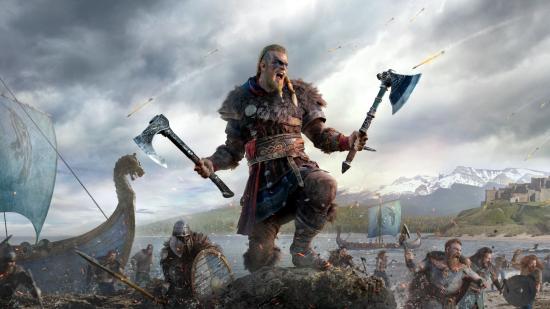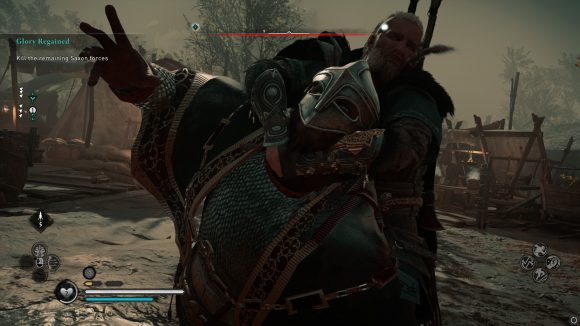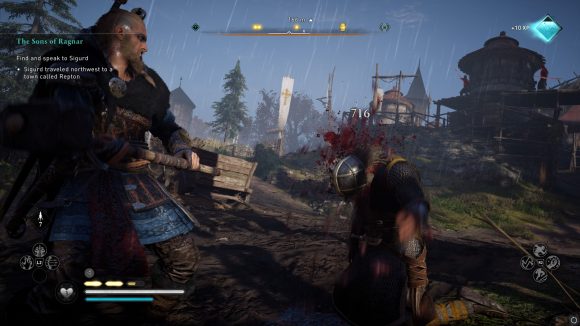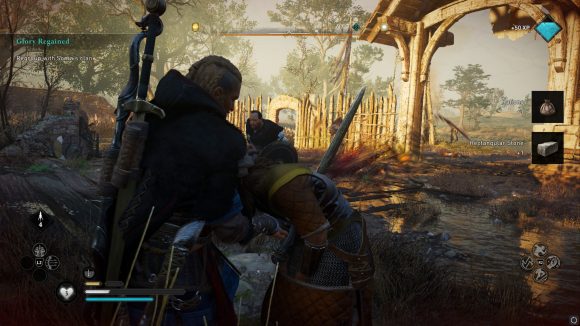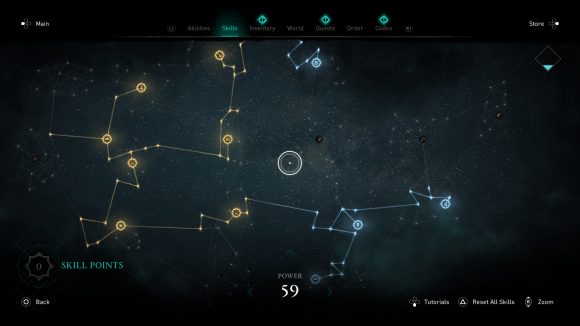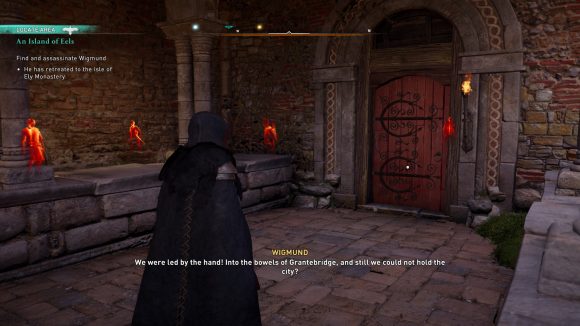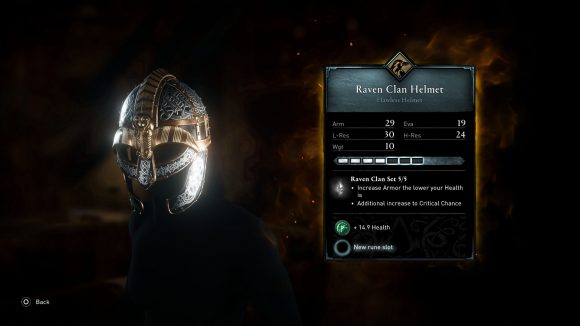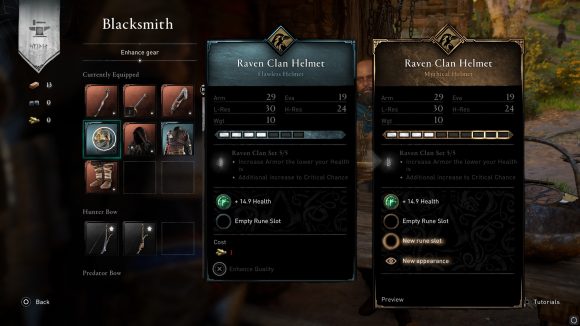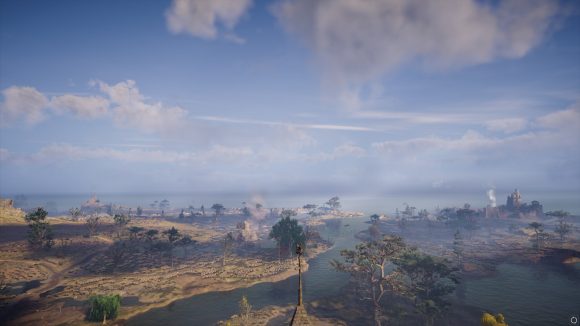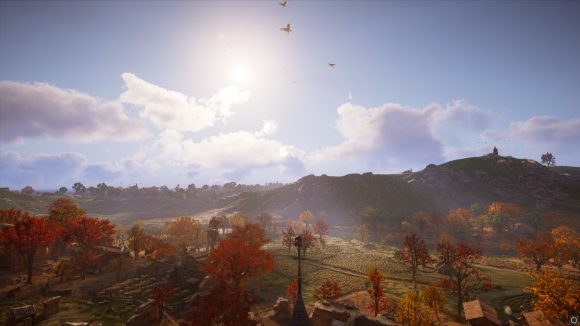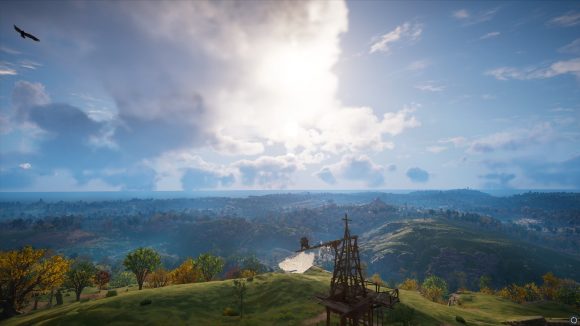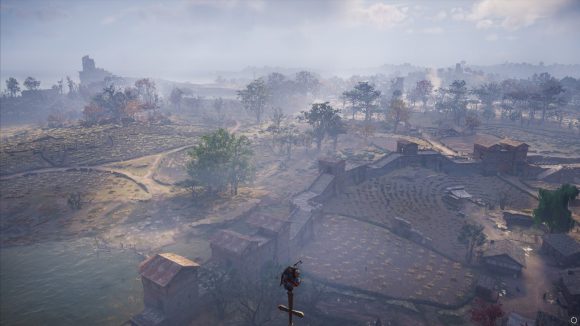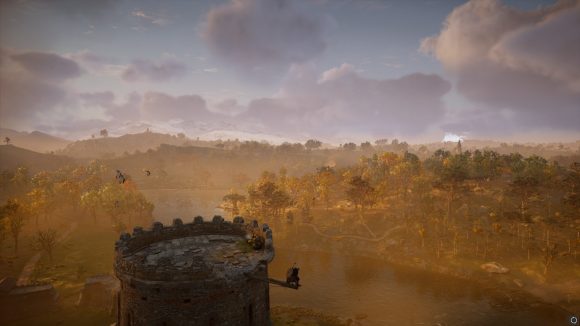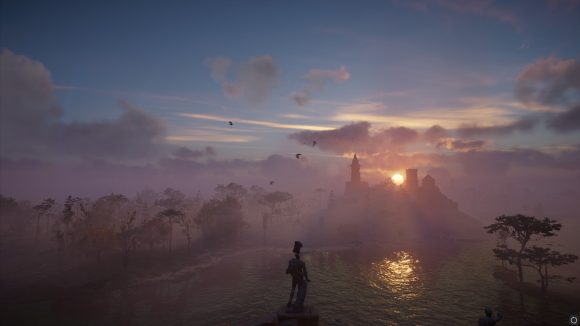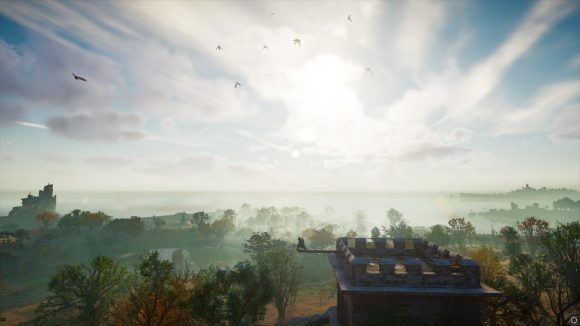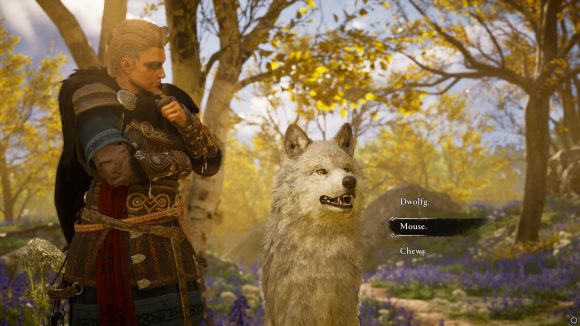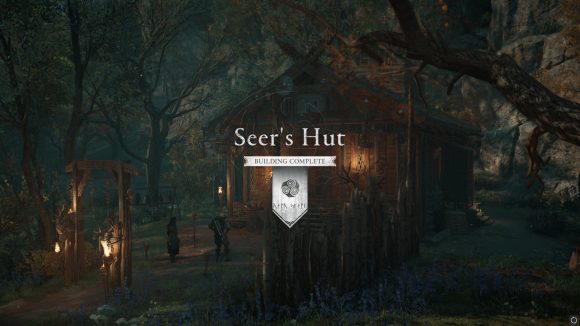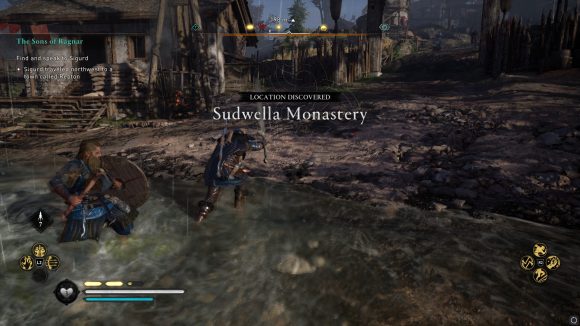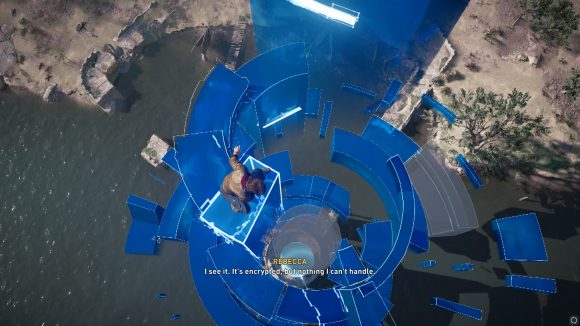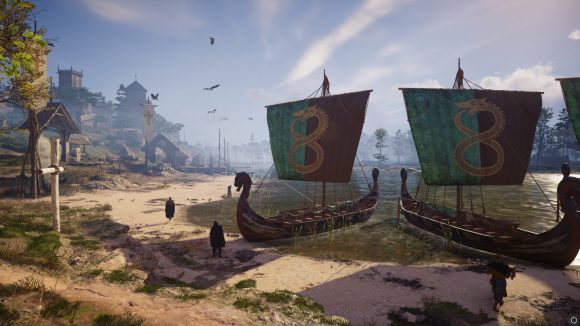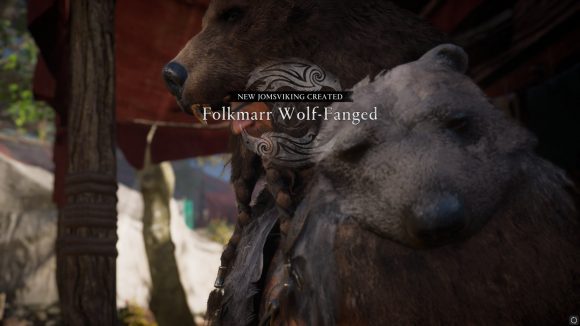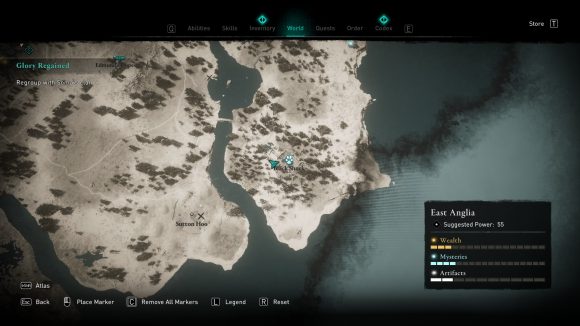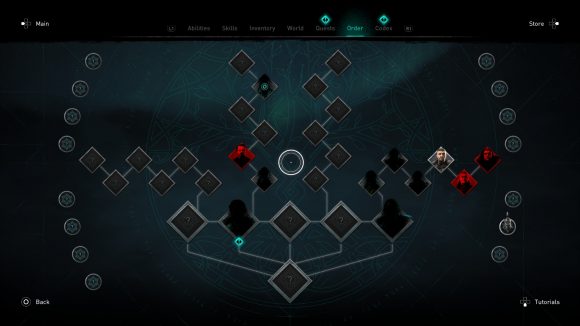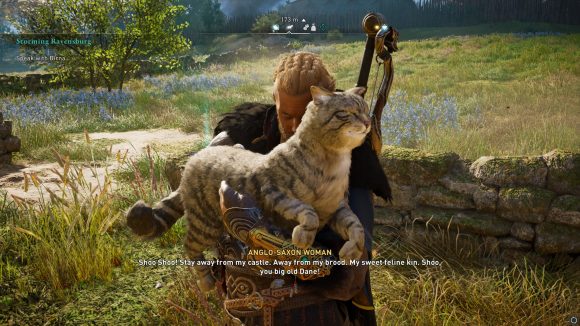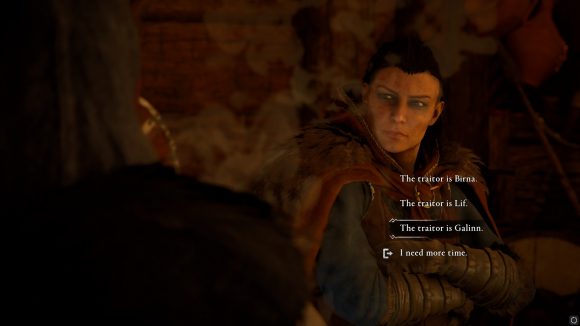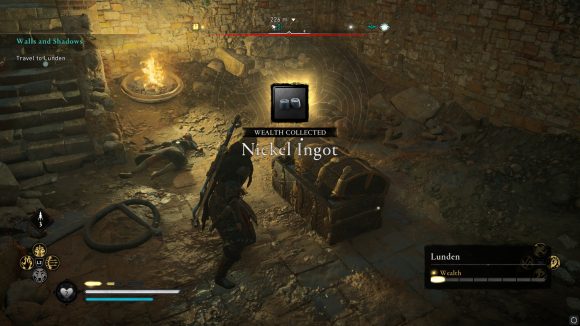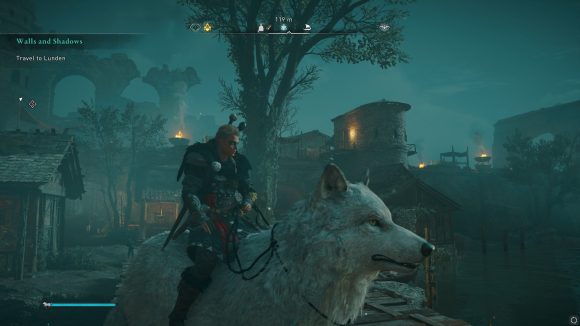Our Verdict
It doesn't do anything fundamentally new and too much of the series' jank remains, but when Valhalla works, it's a marvel, and it works far more often than not.
When Assassin’s Creed Valhalla works, it’s a marvel. It presents a world thick with beauty and mystery, and expertly weaves adventures small and large throughout. Then, just as it teeters on the edge of true brilliance, it lets itself down with episodes of frustration all too typical of the series.
Assassin’s Creed Valhalla is out now on the Ubisoft store. Just as the series did with its soft reboot in 2017’s Origins – which borrowed from Dark Souls to rescue its underwhelming combat – Assassin’s Creed has looked to other games to refresh itself. Enemies have a posture meter now, which you can deplete by parrying in an obvious crib from Sekiro. Sneaking around a Saxon fort and plucking guards into hay bales is reminiscent of the Batman Arkham games. Hunting for clues to root out a traitor in Grantebridge, or solve a murder in Lunden, involves pinging my ‘Odin sight’, which may as well be called Witcher senses or detective vision.
At this point, Assassin’s Creed is to open-world games as Call of Duty is to shooters: a bunch of good ideas taken from elsewhere, tossed together into a lumpy triple-A stew. It mostly works, but also provides ample evidence that the ideas it borrows work much better in games wherein everything is built around them, rather than in this awkward tapestry.
Batman Arkham is so precise that I can calculate that I have just enough time to swoop onto a thug and drag his body into a vent before his mate comes around the corner. It’s an astonishing feeling of power in stealth, and that Valhalla ‘only’ achieves a measure of it is criticising with high praise. Valhalla isn’t as consistent, but compensates by offering a broader experience: like every other sodding protagonist in every Assassin’s Creed ever, Eivor will still leap to the window to their left when I tell them to climb over the battlements and out of sight, so I’ll get seen. But unlike in Batman it’s not like I’m winning any points for staying hidden, so who cares? Let’s have a rumble.

It helps that combat is much better than in predecessor Assassin’s Creed Odyssey, and that forts tend to be smaller and less laborious to clear, so it’s just as fun to stab people noisily in the face as quietly in the back. And as with stealth, so with combat: Valhalla isn’t as good at being Sekiro as Sekiro is, but taking its ideas alongside a bunch of other well-chosen influences has created a combat system that compensates for its incoherence with its sheer breadth.
The addition of posture damage, the return of shields, and the ability to dual-wield any weapon complements a slimmer but more characterful arsenal to deliver some thrilling fights, all punctuated by brutal execution animations. If anything, I generally feel a bit too badass, even with the combat difficulty set to hard.
Importantly, Ubisoft has trimmed fat from Odyssey as well as adding muscle. Equipment is rarer but more impactful: all weapons and armour are unique with unique perks, and they’re no longer tied to your level, so you don’t need to worry about upgrading them to keep pace with your growth. Instead, you’ll do it to strengthen and beautify your favourites.
This also means you lose nothing by taking a cool-looking new toy for a spin, which is just as well when they’re all such fun to use; every weapon I’ve tried has had a thumping moveset that’s been a treat to discover (my mainstay is a greatsword that can physically batter people over castle walls). A freeform leveling system in which you can reset your perks whenever you like with no cost, mixing abilities freely across three broad playstyles, is another example of this playful philosophy.
It’s a philosophy that suits the genre, for open-world games are about nothing if not playful exploration. And again, Valhalla has nailed this, both in cadence and environment. The story is told in big chunks set in each region of England, from which I am willingly sidetracked by a huge variety of little activities. These are snacks between meals, the stuff of light relief: they are typically comic, with a dopamine-eliciting drip of XP their main reward.
Alongside drinking contests, perspective-finding puzzles (again borrowed from Batman Arkham), Dark Age rap battles, and the hopelessly addictive dice game Orlog, I do a number of favours for the locals. I forcibly bathe a Saxon warrior who believes his archery skill comes from coating himself in poo; resolve a financial dispute between two brothers by burning down the source of said finances; and enjoy a bizarre conversation with a man with an axe in his head. It’s all very well, but there’s a bit of a sense of déjà vu about it all. It’s in the world itself that Valhalla truly takes flight.
With the exception of Red Dead Redemption 2 – the best open-world game ever made on most metrics – this is probably the most beautiful digital world I’ve seen. Every shade of England’s natural character is shown in idealised slices as if flipping through a postcard collection, all of them arrestingly atmospheric or just outright unutterably gorgeous: gentle green hills, hostile foggy fens, sun-dappled golden forests, willow-lined rivers, open craggy dales; there’s a wonder behind every move of the camera.
When sailing to new climes where I haven’t unlocked fast travel, I set a waypoint on a nearby river, order my longship to auto-pilot, and turn on the cinematic camera. Then I just sit back and watch, spamming the screenshot key. An original score of Norse folk music – all throaty bass vocals and sparingly strummed strings – is the perfect accompaniment. It’s glorious. I’d like to cruise the entire length of the map, perhaps with a glass of whisky, just to chill and watch the world go by – but the experience is jarringly interrupted by prompts to raid passing camps and monasteries.
Related: Check out the best Viking games on PC
The main incentive for such raids is for supplies with which to build your settlement, a headline feature about which I find I don’t have much to say. As in Mass Effect or Dragon Age: Inquisition, it’s nice, I suppose, to cultivate one’s imaginary plot of digital land, and I certainly get the desire to live in a place that looks this good. It’s a sentiment that many Vikings shared in real life, as Valhalla is keen to emphasise, and it’s tricky to reconcile with the savagery for which they’re more widely known.
Let’s be honest, we’re forcibly invading someone else’s country here. In-game, our motive for doing so is that Sigurd, Eivor’s adoptive brother and clan leader, doesn’t want to pledge fealty to Harold Fairhair, a young upstart with a plan to unify our homeland of Norway. Because apparently that would be terrible. Ubisoft tries to lighten the moral waters with the Dark Age antecedent to Assassin’s Creed’s recurring baddies, the Knights Templar, but your agenda is clear well before they enter the picture: you’re invading another country to escape peaceful rule at home, and whatever you need, your whole clan is fine with just taking it by force.
Taking it from monks, that is, as monasteries have the best loot. Ubisoft knows all the right notes to play here, literally: the low blast of a war horn, the guttural screams of my raiding crew, and a soundtrack of drums, war cries, and clashing steel as we leap from our longboat and charge uphill to Saint Alban’s or wherever. Like the even more chaotic fortress sieges, these are fantastic showcases for Valhalla’s combat and a thrilling bit of Viking power fantasy.
But then you look at all the innocent monks and peasants, who haven’t done a thing to deserve this, as they run screaming in terror. Back in the longship, counting the plunder, I imagine one raider turning to another and asking “are we the baddies?” In these sequences I feel like I’d rather be on the other side. This isn’t really a criticism – such discomfort is all too easy to suppress ’cause Vikings are cool, and the contrast with more peaceful, constructive endeavours is a successful depiction of two genuinely contradictory sides of the Viking character. Still. Bit weird.
Finally though, there are plenty of frustrations which are just outright bad. In Lunden, as I rearrange several mobile shelves so a merchant can get out of his warehouse, I must move many jars of smelly fish sauce so they won’t break and cause us both to throw up. It’s a fun, silly premise, but I can only move the jars one at a time and my patience is soon wearing thin.
A solid-looking stack of grain bags looks a safe place to leave a jar, but it falls off and instantly shatters. Because I’ve been expecting something to go wrong – that’s how far my trust in this game has eroded – I’ve been saving regularly, so I bite back frustration and reload, expecting to be set back no more than a jar or two. Imagine my delight when I load in to find many more of the jars are broken and the rest have returned to their original places. I take my sword to the lot of them, dousing the whole warehouse in stinky fish sauce, and thereafter, our vomit.
And I get that inconsistency in parkour must be a tough problem to fix when almost every surface needs to be climbable, but my God is it annoying. I’ve also had two hard crashes and dozens of progression-blocking bugs, which I either needed to reload and work around, or which couldn’t be avoided at all. There’s a lot of this sort of thing, and NPCs imitating Ross Gellar’s take on the robot dance even when they aren’t talking, braindead goons who stand around waiting to be shot in the face, the ‘assassinate’ prompt that fails to appear when it should, and so on.
In isolation, any of these would be a minor blip, easily ignored. But given enough of them, they coalesce into a constant low-level doubt in the fundamentals of the game. Imagine trying to do some work on your PC with the fan making a grinding, rattling noise. It robs you of confidence in the whole enterprise. Of course, I’ve been playing a pre-release build of the game and a day one patch is being prepared, so hopefully at least some of this will improve.
Read more: The best RPG games on PC
It feels unkind to say so considering everything Valhalla does well, but I can’t help but feel a tiny bit underwhelmed. There’s too little real originality, and just enough of the old AC jank to make it irritating just as it approaches the sublime. It has the feel of a series brute-forcing its way to impress you through its evident production values and astonishing scope, impressive though they undoubtedly are.
But this may be a factor of my high expectations. I didn’t expect much from Odyssey so was pleasantly surprised, and given my fondness for Valhalla’s setting, perhaps I was too eager to be blown away. So I want to end on a positive note. I’ve enjoyed Valhalla very much. It’s certainly the best Assassin’s Creed since Origins set the new format, and maybe even the best ever. It seems churlish to ask for more than that.
